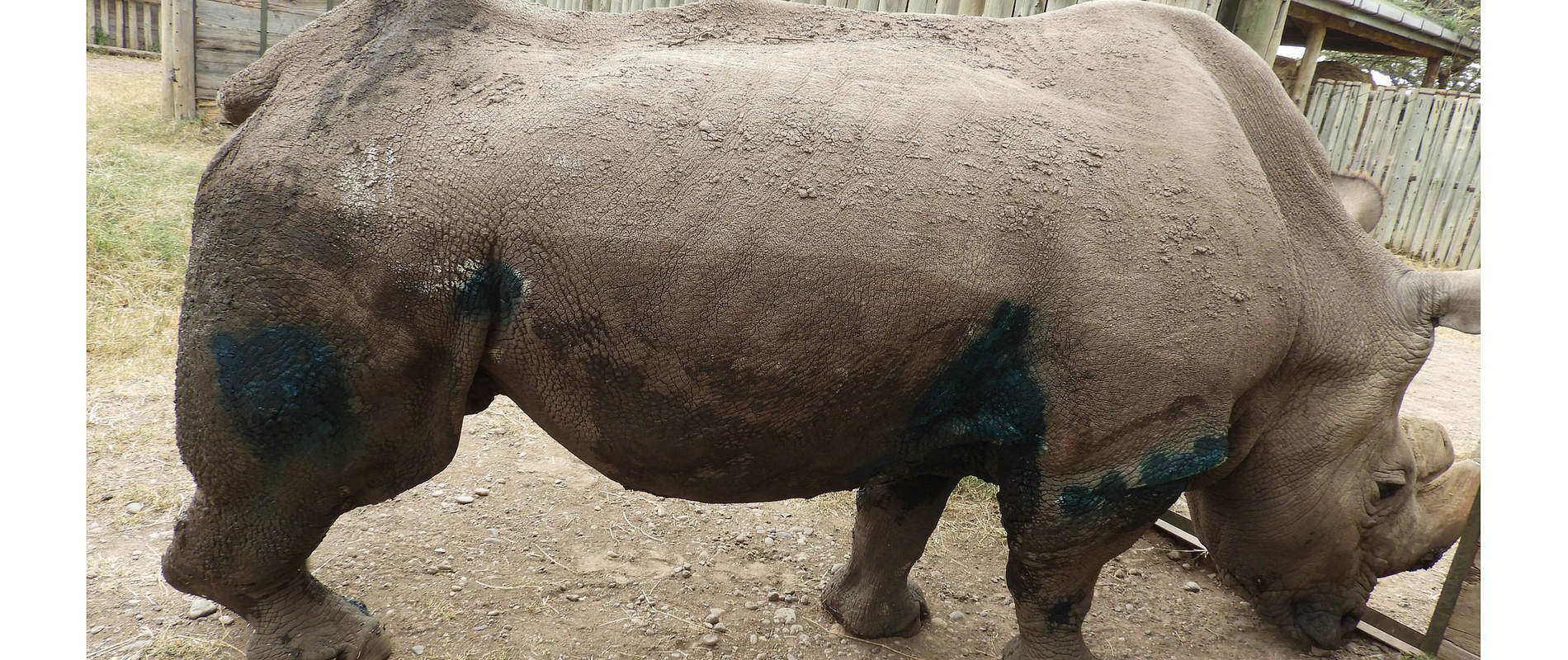From treating the world’s last remaining Northern White Rhino to helping an injured elephant, it’s been an eventful first week for the DSWT funded Mount Kenya Mobile Veterinary Unit, operated in partnership with the Kenya Wildlife Service
From treating the world’s last remaining Northern White Rhino to helping an injured elephant, it’s been an eventful first week for the DSWT funded Mount Kenya Mobile Veterinary Unit, operated in partnership with the Kenya Wildlife Service.
Launched in October 2017, the Mount Kenya Mobile Vet Unit provides permanent veterinary support to Mount Kenya National Park, the Aberdares region and Southern Laikipia; areas that are home to a stunning diversity of wild animals including elephant, leopard, lion,the rare and elusive bongo and endangered black rhinos, as well as other endangered and threatened species.
In taking on its role to save wild lives, both large and small, the Unit has already began treating wild animals in their mission to alleviate animal suffering and preserve Kenya’s incredible biodiversity. Among their first patients was Sudan, the last remaining male Northern White Rhino in the world, who lives under 24/7 guard at Ol Pejeta Conservancy.


Sudan was suffering from open wounds on his hind leg, rump, shoulder, and armpit that had not been responding well to previous treatments and arriving at the scene, the team applied green clay, parasite medication and antibiotic spray to help his wounds heal, all the while helped by the staff at Ol Pejeta who helped to keep Sudan calm and happy throughout the successful treatment. With Sudan under armed guard, rangers and scientists at Ol Pejeta will continue to monitor his progress and the Vet Unit left Sudan in good spirits, able to continue his favourite daily activities of eating grass and relaxing in the mud.
Next up was an emaciated and weak buffalo in Mount Kenya National Park, who was suffering from fleas, ticks and extensive hair loss. Suspected to have an internal injury or infection, Dr Mijele took samples to confirm his diagnosis and treated the buffalo with antibiotics, parasite medication and multivitamins. In the meantime, the buffalo will be monitored over the forthcoming days to see if his condition improves.


With more reports of injured animals coming in, two days later, the team were called to help a female adult elephant in Loisaba Conservancy who had a deep wound on the left side of her abdomen that was oozing pus. Home to Kenya’s second largest population of elephants (after the Tsavo Conservation Area), the elephanthad been shot with a poison arrow and was in so much pain she couldn’t keep up with her herd.
Without treatment, this poor elephant could have suffered blood poisoning which can be potentially deadly. Thankfully, however, the Mount Kenya Vet Unit reached her in time and, after darting her with anaesthetic so the team could step in an examine her, they flushed the wound with lots of water and hydrogen peroxide (an effective antibacterial solution) before applying green clay. An antibiotic injection was also given before she was revived and, in good news, Dr Mijele has given the female elephant a good prognosis for a full recovery.


In the weeks and months ahead the team will travel thousands of kilometres in an effort to treat and hopefully save the lives of countless wild animals, all made possible thanks to the donations we receive from the global public.
More about the Unit:
Named after Kenya’s highest mountain, the Mount Kenya Mobile Vet Unit is our fifth team in partnership with the Kenya Wildlife Service and follows in the footsteps of the successful Tsavo, Mara, Amboseli and Meru Units which are all based in critical conservation areas and have attended to more than 5,067 animals to date, including 2,543 elephants, in the 14 years since the very first Unit began its operations in Tsavo.
Funded by our international supporters and headed by KWS Vet Dr DomnicMijele, the Unit will work together with the Kenya Wildlife Service teams, local communities and tourism lodges and other conservation bodies to receive reports of distressed wild animals.Fully equipped, the Unit has a custom-designed vehicle to ensure the team can mount a rapid and effective veterinary response to any injured wild animals from aardvarks to zebras, reducing the response time compared with flying a Vet in from Nairobi which can delay treatment by hours.


The team is also fully equipped with medicines to treat a variety of wounds from spear to snare and poisoned arrow injuries and has a vaccine refrigerator, dart gun, VHF radios, GPS, camera and binoculars on hand to aid treatment. A DSWT Driver and Veterinary Assistant also support Dr Mijele along with two experienced Kenya Wildlife Service capture rangers.
Our thanks to everyone that has donated towards our Veterinary Units and to our conservation partners, the Kenya Wildlife Service.
To support the vital work of the Mount Kenya Mobile Vet Unit, you can make a donation towards essential supplies through our Gift Shop at: http://giftshop.sheldrickwildlifetrust.org/mobile-veterinary-units
You can also find out more about the lifesaving work of our Veterinary initiatives, visit: https://www.sheldrickwildlifetrust.org/mobilevet/index_new.asp








